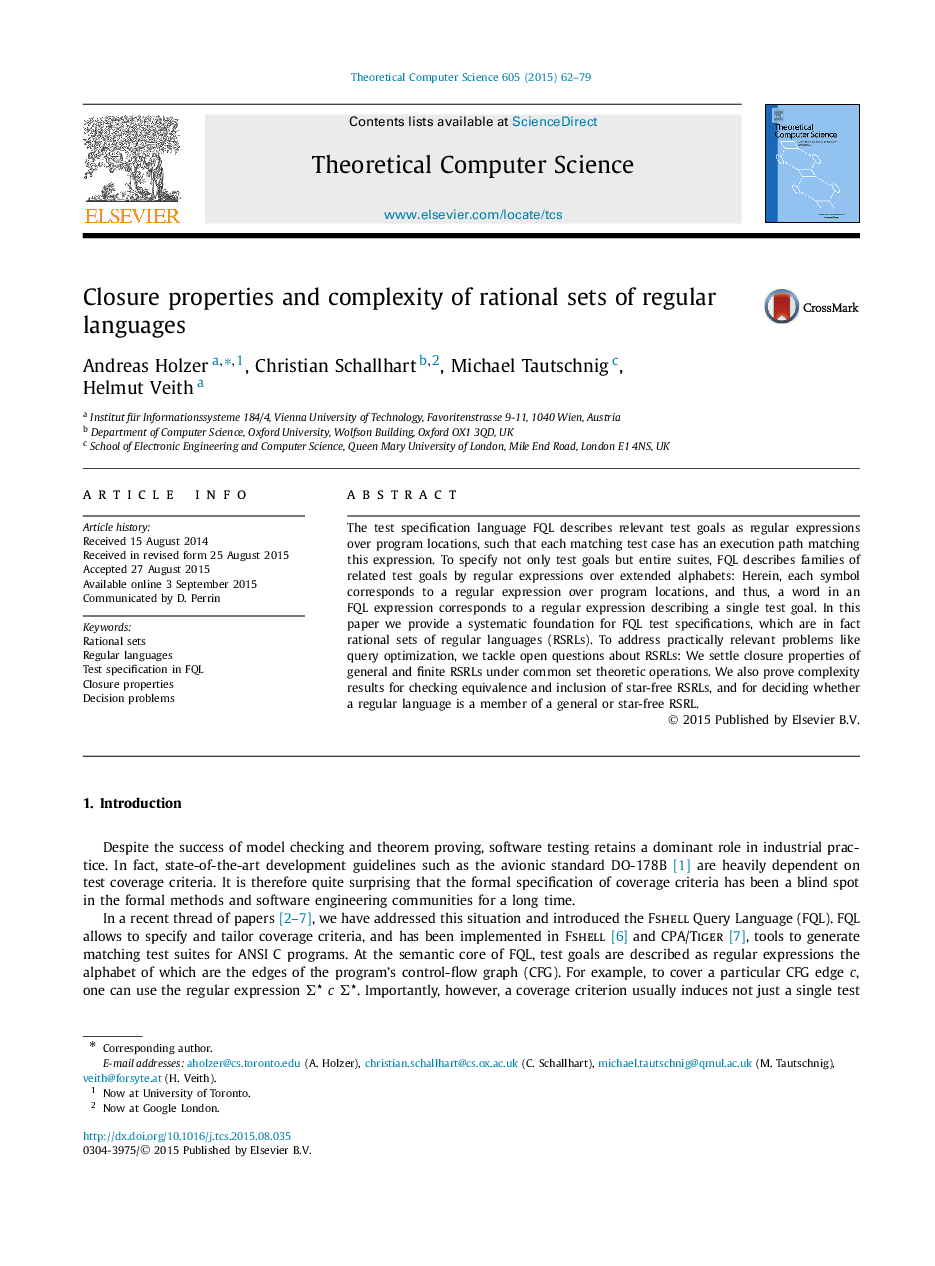| Article ID | Journal | Published Year | Pages | File Type |
|---|---|---|---|---|
| 6876010 | Theoretical Computer Science | 2015 | 18 Pages |
Abstract
The test specification language FQL describes relevant test goals as regular expressions over program locations, such that each matching test case has an execution path matching this expression. To specify not only test goals but entire suites, FQL describes families of related test goals by regular expressions over extended alphabets: Herein, each symbol corresponds to a regular expression over program locations, and thus, a word in an FQL expression corresponds to a regular expression describing a single test goal. In this paper we provide a systematic foundation for FQL test specifications, which are in fact rational sets of regular languages (RSRLs). To address practically relevant problems like query optimization, we tackle open questions about RSRLs: We settle closure properties of general and finite RSRLs under common set theoretic operations. We also prove complexity results for checking equivalence and inclusion of star-free RSRLs, and for deciding whether a regular language is a member of a general or star-free RSRL.
Related Topics
Physical Sciences and Engineering
Computer Science
Computational Theory and Mathematics
Authors
Andreas Holzer, Christian Schallhart, Michael Tautschnig, Helmut Veith,
